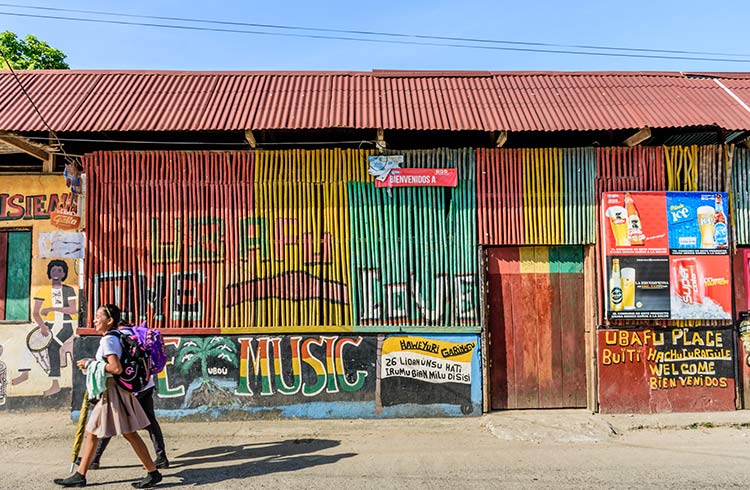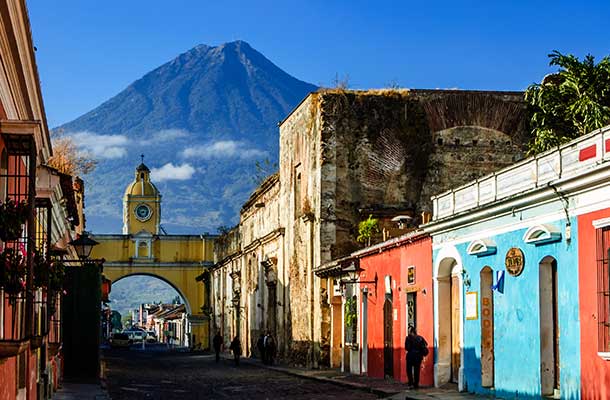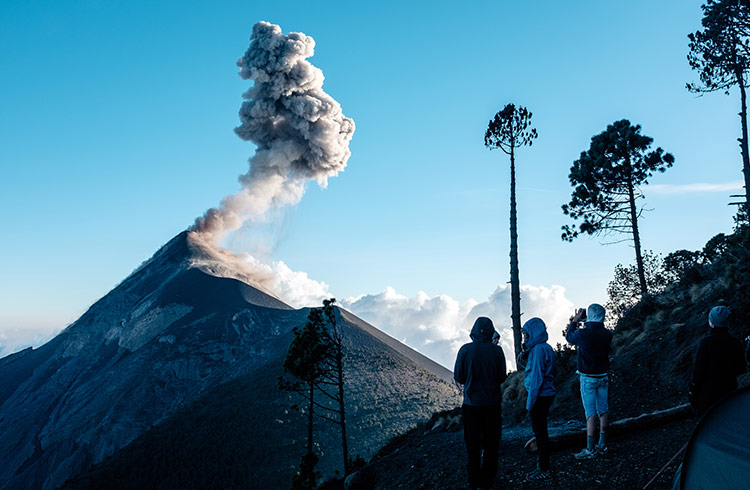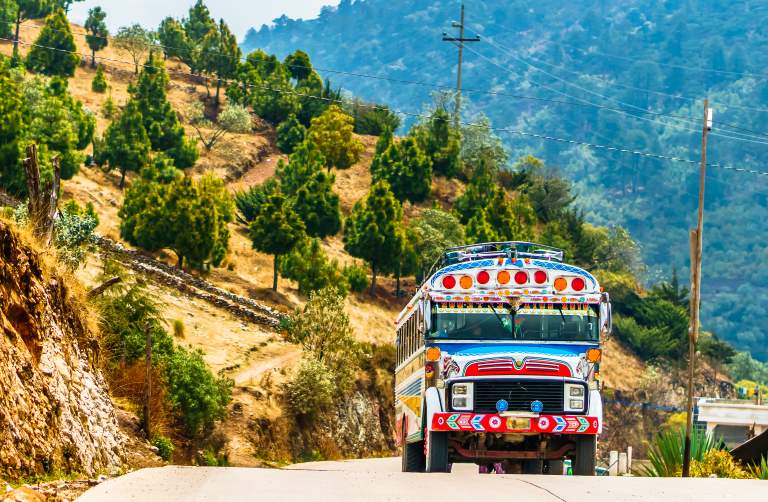How to Stay Healthy While Traveling Around Guatemala
Water and insect-borne diseases are just some of the health risks for travelers. Find out what you need to avoid sickness while traveling in beautiful Guatemala.
 Photo © iStock/Lucy Brown - loca4motion
Photo © iStock/Lucy Brown - loca4motion
An all-too-common story among travelers is about getting stomach trouble the night before boarding a long-distance bus, or after being served food which isn't quite hot enough.
Stories like this should make you question what you eat, where to eat it and how. But it's not just food issues that can make you sick in Guatemala.
Here's what you need to know to avoid getting sick while traveling around Guatemala.
- Vaccinations for Guatemala
- Medical treatment in Guatemala
- Food borne diseases
- Can I drink the tap water?
- Mosquito borne diseases
- Other health concerns
Vaccinations for Guatemala
Make sure you are up to date with your routine vaccinations and, before traveling to Guatemala, get vaccinated for hepatitis A & B and typhoid. If you plan to spend extended periods in rural areas or participating in activities such as caving should consider getting a rabies shot.
Malaria is present in Guatemala so you may want to take anti malarials prior to your arrival in the country. Check with your travel doctor as to which ones would be best suited.
Yellow Fever is not present in Guatemala, however, the disease has been reported in some neighboring Central and South American countries. If you plan to enter Guatemala from any yellow fever-affected country, you will need proof of vaccination on arrival.
Medical treatment in Guatemala
Guatemala has public and private medical facilities, with most being found in the capital Guatemala City, however, you are most likely to encounter doctors who speak some English in private clinics. Medical services start to become scarce to non-existent as you move further away from urban centers.
Food-borne diseases
Health standards in Guatemala are low, so make sure the food you're eating is fresh, clean and cooked properly. While you might think it's a good idea to avoid street food, many travelers would disagree. At least by eating street food, you can see how it's being handled and cooked.
Try to only eat in places that are busy and popular with locals. Have a look at street stalls and restaurants and look for places that are clean and not run down. Is the food pre-cooked and is it protected from flies? Are foods like meat kept cold stored? Avoid the communal condiments where everyone has stuck their fingers in and instead ask for fresh.
Only eat fruit you can peel yourself instead of buying from the vendors who sell pre-peeled and cut fruit, to avoid an inconvenient dose of gastro.
Good hand washing and personal hygiene practices can also help avoid a stomach bug. Wash your hands regularly, including after using public transport, and before eating. It's also a good idea to pack some alcohol-based hand sanitizer, handy if you get stuck somewhere with no running water and need to eat. Some travelers like to carry their own travel cutlery kit to avoid the risk of ending up with cutlery which hasn't been cleaned properly.
Can I drink the tap water?
There aren't any laws around in Guatemala, and the various municipalities are responsible for the region's water, which, for travelers and many locals, is safe to drink. Most locals use bottled water for drinking and cooking.
Before drinking the local water, make sure it has been treated or boiled and peel your fruits and vegetables to protect against pesticides. Avoid water-based drinks, such as frappes, slushies or smoothies and drinks with ice cubes, however, the pricier restaurants will use ice made from safe, clean water.
Mosquito-borne diseases
Guatemala used to have one of the highest rates of malaria infection in Central America, but in recent years there has been a 95% reduction in cases after educational programs.
However, it's a concern for travelers in areas below the 4,900ft (1,500m) altitude range. Take anti-malaria medication (there's no 100% guarantee, though) and use mosquito-prevention tactics including wearing long sleeves, insect repellent, and sleeping under a mosquito net. Malaria is not an issue in Antigua, Guatemala City or Lago Atitlan area.
Dengue fever is transmitted by the Aedes mosquito, and is a problem for travelers during the rainy season. These mosquitoes are found in urban areas, bite during the day and love stagnant water. There is no vaccine or treatment for this disease aside from bed or hospital rest, so your best protection is to use insect repellent and wear clothes that cover your body. In many Central American countries, there are locally made insect repellents available at pharmacies should you find the one you bring not strong enough.
Zika Virus is also widespread in Guatemala, so take the necessary precautions to prevent yourself from being bitten.
Other health concerns
There have been outbreaks of cholera in Guatemala, but this is rare, and a cholera vaccine is not required. Cholera is spread through infected water and food, so always take care.
Altitude sickness can affect people at altitudes around 7,875ft (2,400m), but symptoms may begin as low as 6,500ft (2,000m). Be aware of the symptoms and preventative measures if you're planning to go hiking at Tajumulco Volcano, which is the highest elevation in the country, reaching 13,840ft (4,220m).
Related articles
Simple and flexible travel insurance
You can buy at home or while traveling, and claim online from anywhere in the world. With 150+ adventure activities covered and 24/7 emergency assistance.
Get a quote


No Comments